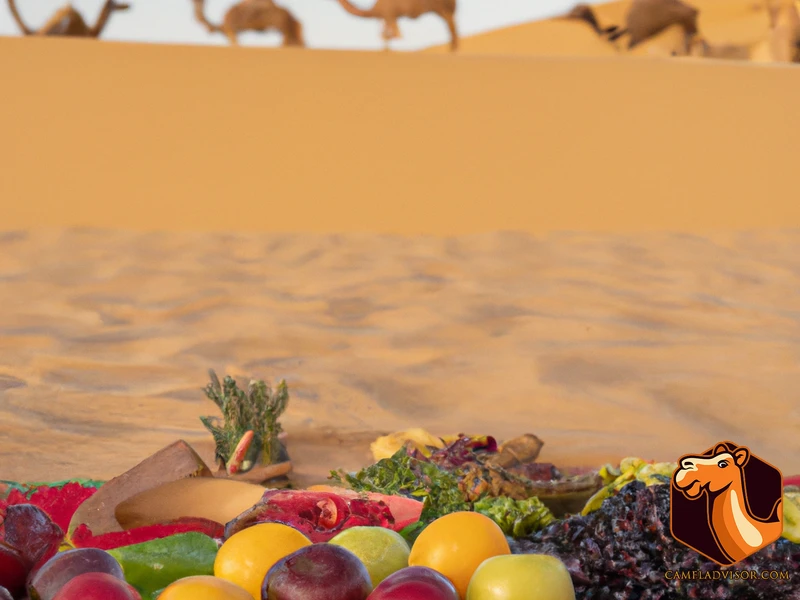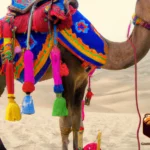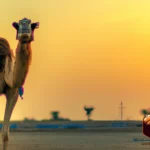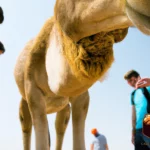Embarking on a camel camping trip can be a thrilling and adventurous experience, but deciding what foods to bring along can be a daunting task. With limited space and resources, it’s important to choose foods that are lightweight, long-lasting, and nutritious. After all, when you’re out in the wilderness, proper nutrition is key to staying energized and enjoying your journey to the fullest. So, in this article, we’ll explore the best foods to bring on a camel camping trip to ensure you’re well-fed and ready for whatever adventures come your way. From dehydrated meals to fresh fruits and vegetables, we’ve got you covered. So, let’s get started!
Contents
- Essential Foods for Camel Camping
- Meal Planning and Preparation Tips
- Conclusion
-
Frequently Asked Questions
- What is a camel camping trip?
- Why is it important to choose the right food options for a camel camping trip?
- Are dehydrated meals a good option for camel camping trips?
- What are the benefits of eating trail mix and granola bars on a camel camping trip?
- Can I bring fresh fruits and vegetables on a camel camping trip?
- Why are energy bars and protein shakes important for camel camping trips?
- What are some meat snack options for a camel camping trip?
- Can I bring instant coffee and tea on a camel camping trip?
- Is it important to bring water on a camel camping trip?
- What are some meal planning and preparation tips for a camel camping trip?
- References
Essential Foods for Camel Camping

When embarking on a camel camping trip, it’s important to come prepared with the right foods to keep you fueled and energized throughout your journey. With limited space and weight capacity on your camel, it’s even more crucial to select foods that are lightweight, portable, and nutritious. In this section, we’ve rounded up the most essential foods to bring on your camel camping trip so that you can focus on enjoying your surroundings and the adventure at hand. Whether you’re a seasoned camel camper or a first-timer, these food suggestions will help ensure that you have a successful and delicious trip.
1. Dehydrated Meals
When it comes to camel camping, dehydrated meals are a popular food choice. These meals come in various flavors and require only hot water for preparation. Some popular options include freeze-dried chili, spaghetti, macaroni and cheese, and even desserts like cheesecake. They are lightweight and easy to pack, making them ideal for long trips.
One great benefit of dehydrated meals is their long shelf life, often up to several years. This means that they can be stored for future trips or emergencies. They are also relatively cheap and can be purchased at most outdoor or camping stores.
It’s important to note that dehydrated meals should not be the only food source on a camel camping trip. They should be used as a supplement to other foods such as fresh fruits and vegetables, trail mix, and canned goods. It is also important to bring enough water to rehydrate the meals and stay hydrated.
Another option is to make your own dehydrated meals at home. This allows for customization and can be a fun activity to do with your fellow campers before the trip. To do this, simply cook a meal as you normally would and then dehydrate it in a food dehydrator. Some popular meal options for this include spaghetti sauce, chili, and stews.
Dehydrated meals can be a convenient and tasty addition to a camel camping trip, but they should not be relied on as the sole source of sustenance. Make sure to bring a variety of foods to keep you fueled for your adventure. For more tips on camel camping, check out our prepare camel trekking tips article.
2. Trail Mix and Granola Bars
Trail Mix and Granola Bars: Trail mix and granola bars are great snack options to bring on a camel camping trip. They are lightweight, easy to pack, and provide a good source of energy. Trail mix usually consists of a mixture of nuts, dried fruit, and sometimes chocolate or other sweets. Granola bars are usually made of oats, nuts, and dried fruit, and can also be a good source of protein.
Here is a table comparing the nutrition information of some popular trail mix and granola bar brands:
| Brand | Serving Size | Calories | Protein (g) | Carbohydrates (g) | Fat (g) |
| — | — | — | — | — | — |
| Nature Valley Granola Bars | 2 bars | 190 | 4 | 29 | 7 |
| KIND Granola Bars | 1 bar | 180 | 4 | 26 | 7 |
| Clif Bars | 1 bar | 250 | 9 | 44 | 6 |
| Sahale Snacks Trail Mix | 1/4 cup | 140 | 4 | 13 | 9 |
| Trader Joe’s Trail Mix | 1/4 cup | 140 | 5 | 14 | 8 |
It’s important to read the labels and choose brands that have a good balance of protein, carbohydrates, and fats to keep you energized throughout your camel camping trip. It’s also a good idea to pack individual servings in resealable bags to make it easier to snack on-the-go.
If you’re looking for a homemade option, here’s a simple recipe for granola bars:
Ingredients:
– 2 cups rolled oats
– 1/2 cup chopped nuts
– 1/2 cup dried fruit
– 1/4 cup honey
– 1/4 cup peanut butter
– 1 tbsp coconut oil
– 1/2 tsp vanilla extract
Instructions:
1. Preheat oven to 350°F (175°C).
2. Mix oats, nuts, and dried fruit in a bowl.
3. In a separate bowl, microwave honey, peanut butter, coconut oil, and vanilla extract for 30 seconds or until melted.
4. Pour melted mixture over dry ingredients and mix well.
5. Press mixture into a greased 8×8 inch baking pan.
6. Bake for 20-25 minutes or until golden brown.
7. Let cool and cut into bars.
Don’t forget to pack a few extra servings, just in case!
3. Peanut Butter and Jelly Sandwiches
Peanut butter and jelly sandwiches may seem like a basic meal, but they are a staple for camping trips because they don’t require refrigeration and are easy to make on-the-go. Plus, they provide the necessary carbohydrates and proteins to keep you energized during your camel camping trip.
Here is a table highlighting the benefits of peanut butter and jelly sandwiches:
| Benefits | Explanation |
| High in protein | Peanut butter contains about 7 grams of protein per serving and helps keep you fuller for longer periods of time. |
| Good source of carbohydrates | Jelly or jam provides simple carbohydrates for a quick energy boost. |
| Long shelf-life | Peanut butter and jelly don’t require refrigeration, which makes them ideal for camel camping trips where cold storage is limited. |
| Easy to make | Peanut butter and jelly sandwiches can be made quickly on-the-go or around the campfire, making meal prep a breeze. |
It’s important to note that some people may have nut allergies, so alternative spreads such as sunflower seed butter or almond butter can be used instead. Additionally, using whole grain bread can add extra fiber and nutrients to the sandwich.
To make your peanut butter and jelly sandwich more exciting, you can also add banana slices, honey, or even bacon. Be creative and experiment with different combinations to keep your taste buds satisfied on your camel camping trip.
While peanut butter and jelly sandwiches are a great meal option for camel camping, it’s important to have a variety of food options to prevent getting bored or missing out on essential nutrients. Check out our article on “Essential Foods for Camel Camping” for more meal ideas to bring on your next camel camping adventure.
4. Canned Foods
Canned foods are great for camel camping trips because they have a long shelf life and are easy to pack and transport. Plus, they provide a quick and easy meal option that doesn’t require a lot of preparation or cooking time. However, it’s important to choose canned foods that are both nutritious and palatable.
Some great options to include in your camping pantry include canned fruits, vegetables, beans, soups, and stews. Look for items that are low in sodium and don’t contain added sugars or artificial preservatives. Canned beans, for example, make a great addition to salads or as a side dish. Canned soups and stews are also a great option for a filling meal and can be easily heated over the campfire.
It’s important to pack a can opener or choose canned foods with pull tabs for easy opening. You may also want to consider packing a few extra supplies like salt, pepper, and other seasonings or spices to enhance the flavor of your canned meals.
Another tip to keep in mind is to pack canned foods in a sturdy container or cooler to prevent them from getting damaged or punctured during transport. And always remember to dispose of empty cans responsibly, either by packing them out or properly recycling them.
Canned foods are a convenient and nutritious option for camel camping trips. Just be sure to choose the right products, pack them properly, and dispose of them responsibly. For other great tips and ideas for your next camel camping adventure, check out our article on 5 Must-Have Items for Camel Camping.
5. Fresh Fruits and Vegetables
Fresh fruits and vegetables are a must-have for any camping trip, and camel camping is no different. They provide essential vitamins, minerals, and fiber to keep you healthy and energized throughout your journey. Fresh produce also adds variety to your meals and can help prevent boredom with your food options.
When selecting fruits and vegetables to bring on a camel camping trip, it’s important to consider their durability and ease of transport. Opt for hardier options like apples, oranges, carrots, and celery that can withstand the rigors of travel without spoilage. Leafy greens like spinach and lettuce are also great options, but be sure to consume them early in the trip before they wilt.
To make transport easier and prevent bruising, pack your fruits and vegetables in sturdy containers like plastic storage bins or reusable mesh produce bags. Keep them cool by placing them in a separate cooler or wrapping them in a damp towel and storing them in a shaded area.
Below is a sample table of fresh fruits and vegetables that are ideal for camel camping:
| Fruits | Vegetables |
| Apples | Carrots |
| Oranges | Celery |
| Bananas | Cucumbers |
| Grapes | Radishes |
| Melon | Broccoli |
| Berries (strawberries, blueberries, etc.) | Peppers |
| Mangoes | Tomatoes |
By bringing a variety of fresh fruits and vegetables on your camel camping trip, you’ll ensure that you have a well-rounded and nutritious diet. Just be sure to pack them carefully and consume them in the first few days of the trip to prevent spoilage.
6. Energy Bars and Protein Shakes
Energy bars and protein shakes are another great option for camel camping trips. These types of food are lightweight, compact, and provide a lot of essential nutrients that will help you stay energized and full throughout the day. Energy bars come in a variety of flavors and can be found at most grocery and outdoor stores. Look for bars that are high in protein and fiber, and low in added sugars.
Protein shakes are another convenient option for camel camping trips. You can pre-pack individual servings of protein powder in Ziploc bags or small containers, and mix them with water or milk when you’re ready to drink. This is a great way to get a quick boost of protein after a long day of hiking or exploring.
When choosing energy bars and protein shakes, it’s important to keep in mind the nutritional content and ingredients. Avoid bars and shakes with high amounts of added sugars and artificial ingredients. Look for bars and shakes with natural ingredients and a good balance of protein, fiber, and healthy fats.
It’s also a good idea to pack a variety of flavors and types of energy bars and protein shakes to mix things up and prevent boredom with your meals. Consider packing bars with nuts and dried fruits, as well as different types of protein powder like whey, soy, or pea protein.
Remember to always stay hydrated when consuming energy bars and protein shakes, as they can be high in sodium and cause dehydration if not consumed with enough water. Drinking plenty of water and electrolyte mixes will help you stay healthy and energized throughout your camel camping trip. For more tips on staying safe and comfortable while camel camping, check out our article on camel camping safety tips.
7. Beef Jerky and Other Meat Snacks
When planning a camel camping trip, it’s important to consider bringing beef jerky and other meat snacks. These types of snacks provide a great source of protein and can help keep you feeling full and energized throughout the day.
Beef Jerky: Beef jerky is a great snack to bring on a camel camping trip, as it is lightweight, easy to pack, and does not require any refrigeration. It’s high in protein and low in fat, making it a healthy and satisfying snack option. When choosing beef jerky, look for varieties that are made with high-quality beef and do not contain added preservatives or chemicals.
Other Meat Snacks: In addition to beef jerky, there are many other types of meat snacks that are great for camel camping trips. Some options include turkey jerky, pork jerky, and venison jerky, as well as meat sticks and sausage. When choosing meat snacks, be sure to read the label and look for products that are low in sugar and sodium.
Including beef jerky and other meat snacks in your camel camping food supply will help ensure that you are getting enough protein to fuel your adventure. However, it’s important to note that meat snacks should not be your only source of protein. Be sure to also include other types of protein-rich foods in your meals, such as canned tuna or chicken, nuts, and beans.
Internal link: To learn more about the benefits of camel camping, check out our article on the benefits of camping with camels for mental health.
8. Bread, Tortillas, and Crackers
When packing for a camel camping trip, it’s important to bring foods that are easy to transport and don’t require refrigeration. Bread, tortillas, and crackers are great options because they are lightweight, compact, and can be used to make a variety of meals.
Bread: It’s best to bring bread that is durable and won’t easily become squished or moldy. Options such as rye or sourdough bread are good choices because they have a longer shelf life than white bread.
Tortillas: Tortillas are a versatile option because they can be used for wraps, sandwiches, or made into chips for a snack. Corn tortillas are a good option because they are sturdy and hold up well, even in hot temperatures.
Crackers: Crackers are a great snack option and can also be used to add crunch to meals. Look for crackers that are high in fiber and whole grains for added nutrition.
When packing bread, tortillas, and crackers, it’s important to keep them in a sturdy container to prevent them from getting crushed. They can also be stored in a reusable cloth bag for additional protection.
As with all food packing, it’s important to consider the number of days the food will need to last and the number of people it needs to feed. Bringing a variety of bread, tortillas, and crackers can help maximize the number of meal options available.
| Bread | Tortillas | Crackers |
|---|---|---|
| Sourdough | Corn | Whole Grain |
| Rye | Flour | Whole Wheat |
| Multi-Grain | Wheat | Rice |
In addition to bringing bread, tortillas, and crackers, it’s important to bring spreads such as peanut butter, or hummus to add flavor and nutrition. These spreads can be easily packed in airtight containers for convenience.
When planning meals for a camel camping trip, consider using bread, tortillas, and crackers as a base for a variety of meals. For example, tortillas can be used to make breakfast burritos or sandwiches, while bread can be used for peanut butter and jelly sandwiches or grilled cheese.
Internal link: Camel trekking expectations can play an important role while planning meals for a camel camping trip, especially if you’re not familiar with the conditions and environment you’ll be facing.
9. Instant Coffee and Tea
When you’re out in the desert on a camel camping trip, waking up to a cup of hot coffee or tea can be a luxurious treat. Instant coffee and tea are lightweight and easy to pack, making them the perfect choice for a camping trip. However, it’s important to also remember to bring a portable stove or camping kettle to heat up water.
Here are some popular instant coffee and tea options:
| Instant Coffee/Tea | Description |
|---|---|
| Starbucks Via | High-quality instant coffee packets that come in various roasts and flavors. |
| Nescafe Taster’s Choice | A classic instant coffee that comes in regular or decaf options. |
| Harney & Sons Tea Bags | A premium tea brand that offers individually wrapped bags in a variety of flavors. |
| Tazo Tea Bags | An affordable tea brand that has a wide selection of flavors to choose from. |
It’s important to note that instant coffee and tea are not meant to replace water intake. So be sure to bring enough fluids to stay hydrated during your trip. If you want to spice up your coffee or tea, consider bringing honey, sugar, or powdered creamer.
If you’re interested in learning more about camel camping, check out our article on Camel Camping vs Traditional Camping or Maximizing Comfort on a Camel Camping Trip.
10. Water and Hydration Mixes
Proper hydration is crucial when you’re out in the desert on a camel camping trip. It’s important to bring enough water to keep yourself hydrated, as well as electrolyte-rich hydration mixes to replace those lost through sweat. Water is the most important resource you can bring with you, and it’s essential to plan for a minimum of two liters per day of activity. Hydration mixes like Nuun and Skratch Labs are great options for replacing lost electrolytes and keeping your energy levels up. These mixes come in various flavors and are easy to pack, making it convenient to stay hydrated during your journey.
Be sure to pack the water and hydration mixes in durable water containers that can withstand the harsh elements. Consider investing in a camel pack or hydration belt that allows you to easily carry water and hydration mixes on the go. You can also freeze a few water bottles the night before so they can double as ice packs in your cooler, keeping your food fresh and your water cool.
It’s important to note that not all camel camping sites have access to fresh water sources. In some cases, you may need to bring your own filtration system or plan to bring enough water to last the duration of your stay. So, make sure to research your camping site beforehand and plan accordingly.
Don’t forget to regularly hydrate during your camel camping trip, even if you don’t feel thirsty. The harsh desert sun can easily dehydrate you without you even realizing it. With proper water and hydration mix planning, you can stay healthy and energized during your camel camping trip.
Pro Tip: To learn more about the history and cultural importance of camel camping, check out our article on /history-camel-camping-importance-cultures/. Or, if you’re looking for some inspiration for your next camel camping adventure, head over to our article on /top-10-camel-camping-sites/.
Meal Planning and Preparation Tips
When it comes to planning and preparing meals for a camel camping trip, it’s important to keep in mind that you’ll likely have limited resources and space to work with. To make the most of what you have, it’s helpful to follow these meal planning and preparation tips:
Create a Menu: Before setting out on your trip, take the time to make a meal plan. This will help ensure that you have everything you need and prevent you from overpacking or forgetting important items. Consider factors such as the length of your trip, the weather conditions, and the level of physical activity you’ll be engaging in.
Pack Lightweight and Non-Perishable Items: Given that you’ll be transporting your food on a camel, it’s important to choose items that are lightweight and non-perishable. Dehydrated meals, trail mix, and canned goods are all great options, as they won’t spoil easily and won’t add excess weight to your load.
Bring the Right Cooking Gear: Depending on the type of food you plan on preparing, you may need specific cooking gear. For example, if you plan on making soup or coffee, you’ll need a pot or kettle. It’s also a good idea to pack a small portable stove or campfire grill, along with fuel or firewood.
Prep Meals Ahead of Time: To save time and energy during your trip, consider prepping your meals ahead of time. For example, you can measure out ingredients and pack them in separate baggies or containers. You can also pre-cook meals like rice or pasta and simply heat them up on your stove.
Plan for Snacks: In addition to main meals, it’s important to pack plenty of snacks to keep your energy levels up throughout the day. Trail mix, granola bars, beef jerky, and fresh fruits are all great options.
By following these meal planning and preparation tips, you can ensure that you have a variety of healthy and filling food options to enjoy on your camel camping trip.
Conclusion
In conclusion, it is important to carefully plan and prepare the food for a Camel camping trip to ensure that you have enough energy and nutrients to sustain yourself throughout the journey. You need to choose the right type of food and consider the method of preparation and storage as well. Packing dehydrated meals, trail mix, canned foods, fresh fruits and vegetables, energy bars, protein shakes, beef jerky, bread, tortillas, and crackers, instant coffee and tea, and hydration mixes are some of the best options for your Camel camping trip.
Moreover, it is crucial to bring enough water and hydration mixes to keep yourself hydrated and avoid dehydration. Additionally, planning the meals ahead of time and properly storing them can help ensure that you will not run out of food or deal with spoiled food. Lastly, taking the time to properly clean up after meals and dispose of food waste in a responsible manner is vital to protecting the environment and avoiding unwanted encounters with wildlife.
Remember, a well-fed Camel camper is a happy camper. So, take the time to plan your meals carefully and bring along plenty of healthy and tasty options to keep you fueled for the adventure ahead. Happy camping!
Frequently Asked Questions
What is a camel camping trip?
A camel camping trip is a type of excursion where people travel on camels to explore hard-to-reach locations, usually in desert areas.
Why is it important to choose the right food options for a camel camping trip?
Choosing the right food options for a camel camping trip is essential, as these trips can be challenging and may not offer easy access to food sources. Eating wholesome and nutritious meals will help you stay energized and healthy throughout the trip.
Are dehydrated meals a good option for camel camping trips?
Yes, dehydrated meals are an excellent option for camel camping trips, as they are lightweight, easy to prepare, and filling. They offer a great source of nutrition and are available in a wide variety of flavors and options.
What are the benefits of eating trail mix and granola bars on a camel camping trip?
Trail mix and granola bars are great options for a camel camping trip, as they are lightweight, highly portable, and packed with essential nutrients. These snacks provide a quick energy boost and are easy to eat on the go.
Can I bring fresh fruits and vegetables on a camel camping trip?
Yes, fresh fruits and vegetables are an excellent source of nutrition and hydration and are highly encouraged to bring on a camel camping trip. Just make sure to choose fruits and vegetables that are easy to transport and have a long shelf life, such as apples, oranges, and carrots.
Why are energy bars and protein shakes important for camel camping trips?
Energy bars and protein shakes are important for camel camping trips, as they provide a quick source of energy and are easy to digest. They can help you power through tough terrain and keep you energized for extended periods.
What are some meat snack options for a camel camping trip?
Beef jerky and other meat snacks are great options for a camel camping trip. They are nutrient-dense, easy to pack, and can be eaten on the go. Just make sure to choose meat snack options that have a long shelf life and won’t spoil easily.
Can I bring instant coffee and tea on a camel camping trip?
Yes, instant coffee and tea are great options for a camel camping trip, as they are lightweight and easy to prepare. They can help you stay alert and energized throughout the trip.
Is it important to bring water on a camel camping trip?
Yes, it is crucial to bring water on a camel camping trip, as staying hydrated is essential for good health and energy. Camel camping trips can be challenging, and it’s important to drink enough water to prevent dehydration.
What are some meal planning and preparation tips for a camel camping trip?
Some meal planning and preparation tips for a camel camping trip include choosing lightweight and nutrient-dense foods, packing non-perishable food items, and bringing versatile cooking tools like a portable stove or grill. Planning out your meals in advance and portioning out your food can also help you stay organized and avoid wasting food.







